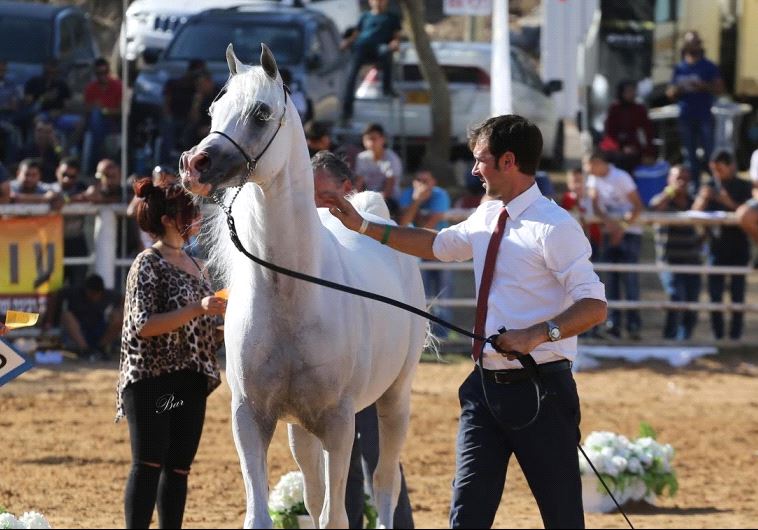Israelis and Palestinians unite over horses
“The Arabian horse has a magic, anyone who comes near one will be obsessed,” says Sufian Taha, 49, a horse breeder from east Jerusalem.
 Israeli National Arabian Horse Show at Kibbutz Alonim in northern Israel(photo credit: BAR HAJAJ)Updated:
Israeli National Arabian Horse Show at Kibbutz Alonim in northern Israel(photo credit: BAR HAJAJ)Updated: